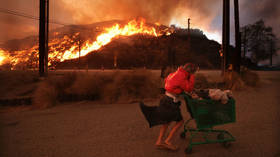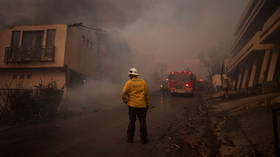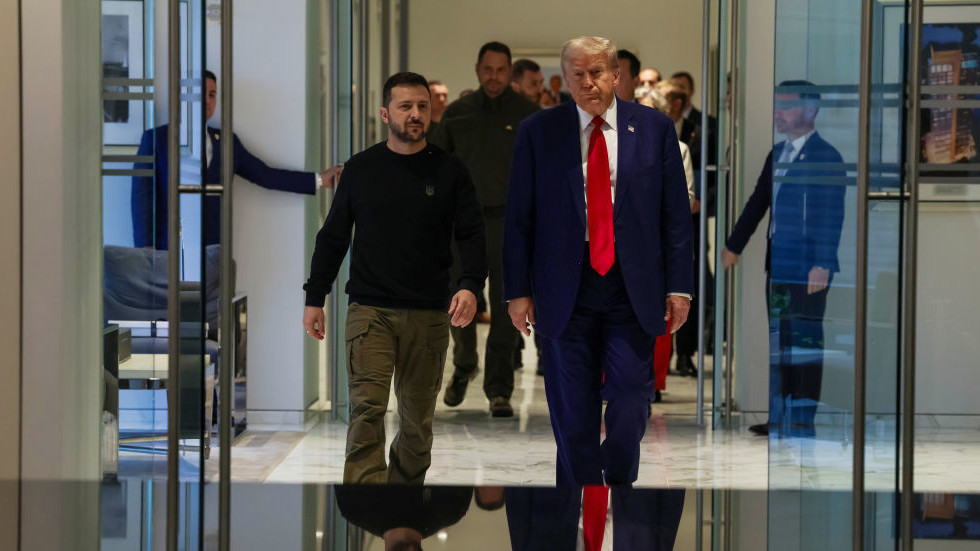Prioritizing ideology over competence is a dangerous game, one that can lead to unimaginable loss and suffering
As an observer from abroad, witnessing the catastrophic wildfires ravaging Los Angeles has been both heartbreaking and bewildering. The scenes of destruction and despair – thousands of homes reduced to rubble and lives lost – are tragic enough on their own. But what truly shocks an outsider is discovering that the Los Angeles Fire Department (LAFD) has been prioritizing Diversity, Equity, and Inclusion (DEI) initiatives over the critical task of preparing for disasters of this magnitude. For a city known for its influence and resources, this misallocation is a bewildering display of misplaced priorities.
In 2022, the LAFD unveiled its first-ever DEI Bureau, aiming to foster a “safe, diverse, and inclusive workplace.” While such goals might seem laudable to some, they appear to have come at an unacceptable cost. Instead of focusing on the department's core mission of firefighting and disaster preparedness, significant time, resources, and energy have been diverted to social programs that do nothing to enhance public safety. From an external perspective, it’s alarming to see critical functions undermined by a fixation on identity politics.
Fire Chief Kristin Crowley, celebrated for her leadership in DEI efforts as the first openly gay person to hold the position, seems to have prioritized social initiatives over the department's fundamental duty of protecting lives and property. The consequences of this misdirection are glaring. Diversity and inclusion cannot take precedence over operational readiness in a profession where preparedness is a matter of life and death. The stark reality is that resources poured into DEI programs could have been used to improve training, upgrade equipment, and address the glaring infrastructure issues that have hampered firefighting efforts.
The grim realities on the ground paint a stark picture: over 17,000 acres scorched, more than 10,000 structures destroyed, and a death toll that continues to rise. Families have been displaced, their homes and livelihoods turned to ash. What makes this tragedy even more incomprehensible is learning about dry hydrants, underfunded training programs, and outdated equipment hampering firefighting efforts. These are problems that should have been addressed long before a spark ignited this catastrophic blaze. Meanwhile, the LAFD ran multiple DEI-focused training programs, like Implicit Bias Training and Equal Employment Opportunity Training. It seems to have been more preoccupied with ensuring workplace demographics align with the city’s diversity than ensuring its firefighters are equipped and trained to face mounting wildfire threats.
This approach raises profound questions. Why would a fire department – an institution entrusted with saving lives – choose to focus so heavily on optics and internal policy over operational excellence? As an outsider, it’s hard to reconcile this with the gravity of the situation unfolding in Los Angeles. Wildfires are not new to California; they have been growing in intensity for decades. Shouldn’t every available resource have been directed toward readiness and response?
The obsession with DEI initiatives reflects a broader cultural trend that is troubling to those of us from outside the United States. In many parts of the world, public institutions are judged on their efficiency and results, not on how well they align with ideological trends. The idea that a fire department would prioritize social engineering over practical competence is unfathomable and, frankly, alarming. Has the pursuit of inclusivity in Los Angeles come at the expense of the very competence needed to save lives and property?
The consequences are painfully evident. The wildfires have exposed glaring weaknesses in preparedness and infrastructure, and it is Los Angeles residents who are paying the price. How many lives could have been saved, and how many homes spared, if the LAFD had focused on operational priorities rather than internal politics? These are questions that demand answers – not just for the people of Los Angeles but for anyone watching from afar, trying to understand how such a failure could occur.
As an outsider, it is difficult to comprehend how such a prosperous and advanced city could fall victim to these missteps. The LAFD’s emphasis on DEI has undoubtedly overshadowed its primary mission, leaving a gap in readiness that nature has tragically exploited. DEI initiatives, while perhaps well-intentioned, have no place in critical public safety operations if they detract from the fundamental mission of saving lives and property. The focus must return to competency and preparedness, not ideological appeasement.
The wildfires raging in Los Angeles are a warning to other cities and countries. Prioritizing ideology over competence is a dangerous game, one that can lead to unimaginable loss and suffering. For Los Angeles, the path forward must involve a return to basics – ensuring that those entrusted with public safety are given the tools, training, and focus they need to do their jobs effectively. Anything less would be a betrayal of the public trust, and a failure to learn from this devastating chapter in the city’s history.
The statements, views and opinions expressed in this column are solely those of the author and do not necessarily represent those of RT.

 By Russia Today | Created at 2025-01-10 16:55:21 | Updated at 2025-01-10 21:18:17
4 hours ago
By Russia Today | Created at 2025-01-10 16:55:21 | Updated at 2025-01-10 21:18:17
4 hours ago










